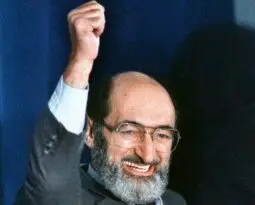Ethics and Conscience Clauses
Selected resources from The Hastings Center.
From Bioethics Briefings:
Conscience Clauses, Health Care Providers, and Parents
Conscientious objection in health care is the refusal to perform a legal role or responsibility because of moral or other personal beliefs. Most states have “conscience clauses” that describe the rights of health care providers to refuse to provide services, such as abortions or medical aid-in-dying. Most states also permit parents to get non-medical exemptions from vaccinating their children. The central philosophical question in conscientious objection is whether one’s moral commitments that conflict with a professional (or other) duty outweighs the duty itself. Read our briefing to consider: how should laws and professional guidelines on conscientious objection in health care balance the respect for an individual’s beliefs against the well-being of the general public?
From Hastings Bioethics Forum:
- A Model of Conscientious Objection to Abortion BansMany clinicians have followed their conscience to find ways to provide good care within the confines of abortion bans. Henry Morgentaler was a model.
- Legalized Medical Discrimination Violates Medical EthicsFlorida Governor Ron DeSantis recently signed SB 1580, a bill that that shields health care providers, institutions, and insurers who decline to treat patients or refuse to pay for care when they have “conscience-based objections” meaning “sincerely held religious, moral, or ethical beliefs.” Under this law, a physician who fervently believes in the danger of…
- Reframing Conscientious Care: Q&A with Mara BuchbinderMuch of the conversation about conscience in health care has focused on the ethics of physician refusal to perform procedures that they object to. However, this framework seems insufficient for thinking about contemporary abortion provision, where new legislation is routinely passed to restrict the ability of practitioners to provide care that they believe to be…
- Conscientious Objection and Undocumented Migrants in SpainFor decades, all undocumented migrants in Spain have had access health care, but that changed drastically on September 1, when a new law went into effect that provides coverage to undocumented migrant adults only in cases of emergency, pregnancy, or delivery. The modifications introduced by this law imply a change of paradigm in the public…
From Hastings Center Report:
Conscience and Religious Freedom Division Marks Its First Anniversary with Action
First published: 18 April 2019
Abstract
In January 2018, the Trump administration established the Conscience and Religious Freedom Division within the Department of Health and Human Services’ Office of Civil Rights with the explicit goal of intensifying legal protection of religious and conscience objections in health care. The establishment of OCR’s new division illustrates the significant powers of administrative agencies to mold the substance of law without seeking legislative action. The mere formation of a division dedicated to protecting conscience rights is already having a significant impact; it is causing health care entities, including hospitals, research organizations, and clinics, to change policies and practices to comply with the declared enforcement strategy. Administrative agencies also shape the law in what they decide not to pursue. For example, OCR has suspended enforcement of the Affordable Care Act prohibition against gender-identity discrimination.
Imposing Death: Religious Witness on Brain Death
First published: 25 December 2018
Abstract
The bioethical, professional, and policy discourse over brain death criteria has been portrayed by some scholars as illustrative of the minimal influence of religious perspectives in bioethics. Three questions then lie at the core of my inquiry: What interests of secular pluralistic societies and the medical profession are advanced in examining religious understandings of criteria for determining death? Can bioethical and professional engagement with religious interpretations of death present substantive insights for policy discussions on neurological criteria for death? And finally, how extensive should the scope of policy accommodations be for deeply held religiously based dissent from neurological criteria for death? I begin with a short synopsis of a recent case litigated in Ontario, Canada, Ouanounou v. Humber River Hospital, to illuminate this contested moral terrain.
Justifying Conscience Clauses
First published: 11 October 2018
Abstract
In “Disentangling Conscience Protections,” in this issue of the Hastings Center Report, Nadia Sawicki offers a taxonomy of conscience protection laws (conscience clauses) that highlights the expansive protections they can offer to health professionals who refuse to provide a medical service for reasons of conscience. Conscience clauses can protect health professionals from adverse actions by public actors (such as administrative agencies, prosecutors, and government funders) or private actors (such as employers, private professional associations, and injured patients), and they can also protect health professionals from being subject to adverse actions for their beliefs, their conduct, or harm that results from their conduct. This taxonomy provides an accurate description of the broad range of protections conscience clauses can offer and thereby is a valuable contribution to the scholarly literature on conscientious objection in health care. But it remains to consider whether the distinctions Sawicki identifies disentangle conscience protections beyond merely providing a taxonomy. In particular, does the taxonomy identify relevant distinctions in relation to determining whether a conscience clause is justified?
Disentangling Conscience Protections
First published: 11 October 2018
Abstract
Earlier this year, the U.S. Department of Health and Human Services announced its intent to strengthen enforcement of legal protections for health care providers’ conscience rights. It proposed regulations that would give the DHHS Office of Civil Rights greater authority to ensure that recipients of federal funding comply with federal conscience laws. This recent development creates an opportunity for scholars and policy-makers to revisit the perennial debate about whether and how law should protect health care providers’ rights of conscience. Arguments about who should be protected, what actions should be protected, and whether there should be any limitations on the exercise of conscience rights have brought us no closer to a resolution. However, there is one remaining avenue for analysis that has, surprisingly, received very little attention—the question of how providers are protected, and from what consequences. Existing U.S. conscience laws immunize health care providers from a wide range of adverse consequences—including civil liability, criminal prosecution, administrative penalties, adverse action by employers, and discrimination by private actors, among others. However, academic and public policy debates rarely acknowledge the breadth of these protections. It is essential to disentangle this network of possible protections.
Proposed Regulations Favor Providers’ Conscience Rights over Patients’ Rights
First published: 16 August 2018
Abstract
In establishing a new Conscience and Religious Freedom Division within the Office of Civil Rights of the Department of Health and Human Services and issuing new proposed regulations, the Trump administration has significantly expanded the power of health care providers over the medical choices of patients and has privileged the moral agency of health care providers over that of individual patients. When finalized, these regulations will replace those promulgated during the Obama administration, just as those regulations replaced those promulgated in 2008 by the Bush administration. The 2018 proposed regulations interpret the federal conscience statutes more broadly than either of these predecessors. Among the many significant provisions in the proposed rules are definitional terms that reach a broader range of individuals and activities, the absence of balancing interests, and a powerful enforcement structure.
Religious Hospitals and Patient Choice
First published: 22 November 2016
Abstract
Recent media reports have drawn widespread attention to the experiences of patients who are denied reproductive services at Catholic hospitals. For some patients, such as those experiencing miscarriage, denial of appropriate treatment can lead to serious health consequences. However, many patients are unaware of the limitations on services available at religiously affiliated health care institutions. As a result, patients’ ability to make informed and autonomous decisions about where to seek treatment is hindered. There are currently no federal or state laws requiring health care institutions to inform patients directly of the full scope of medical services they are unable to provide on the basis of religion or conscience. Given religious hospitals’ significant role in the provision of health care in the United States, it is essential that patients be clearly informed about institutional limitations on care. This goal would be best served by adopting a federal disclosure law similar to the Patient Self-Determination Act.
When Policy Produces Moral Distress: Reclaiming Conscience
First published: 10 March 2016
Abstract
For too long, bioethics has followed law in reducing “conscience” to “conscientious objection,” in other words, to laws and policies permitting and protecting refusal. In “Reframing Conscientious Care: Providing Abortion Care When Law and Conscience Collide,” Mara Buchbinder and colleagues draw our attention to one dimension of the problem of reducing conscience to refusal to provide certain forms of medical care: what about the conscience problems experienced by the professionals who are attempting to provide safe, effective health care that includes services that others associate with conscientious objection? In seeking to disrupt a specific medical practice—one that is legal, desired by the patient, and conducted in accordance with medical standards—North Carolina House Bill 854, The Woman’s Right to Know Act, and laws like it, appear to be designed to produce moral distress in physicians and other professionals involved in the provision of abortions. For abortion providers in North Carolina and other states, conscientious objection to the mandates of laws like HB 854 isn’t a realistic option. So what can bioethics offer to professionals bound by such laws? We can start by reclaiming the idea of “conscience” as something that can say “yes” to providing health care.
Reframing Conscientious Care: Providing Abortion Care When Law and Conscience Collide
First published: 10 March 2016
Abstract
“It’s almost like putting salt in a wound, for this person who’s already made a very difficult decision,” suggested Meghan Patterson (an alias), a licensed obstetrician-gynecologist whom we interviewed in our qualitative study of the experiences of North Carolina abortion providers practicing under the state’s Woman’s Right to Know Act (House Bill 854; 2011). The act requires that women receive counseling with state-mandated information at least twenty-four hours prior to obtaining an abortion. After the law was passed, Patterson worked with clinic administrators, in consultation with a lawyer, to write a script to be used in the state-mandated counseling procedure. She and her colleagues took particular steps to mitigate the effects of what she described as HB 854’s “forced language”—such as referring to the “father of the child.” While HB 854 stipulated that patients must be informed of the medical risks associated with the particular abortion procedure as well as those of carrying the child to term, Patterson’s script made explicit the magnitude of comparative risks, emphasizing that the risks of carrying a pregnancy to term are substantially greater than the risks of an early-term abortion. She felt that these contextualization strategies helped to facilitate trust and rapport in a clinical care situation that proved relationally and morally challenging. In this article, we take up and expand on this point by elucidating an empirically grounded approach to ethically justified care when health care providers face legal or institutional policy mandates that raise possible moral conflicts. Our approach builds on recent bioethics discourse addressing conscience in the practice of medicine. While the concept of conscience has broad philosophical underpinnings relating to moral judgment, agency, and discernments of right and wrong, debates in bioethics have tended to engage the concept primarily vis-à-vis rights of conscientious objection or refusal. Here, we suggest a broader frame for thinking about claims of conscience in health care. Our approach draws on the feminist bioethics and the ethics of care literatures to highlight how providers may be motivated by matters of conscience, including relational concerns, in the active provision of certain forms of care. What emerges are two possibilities: not only conscientious refusal to comply with a policy mandate but also conscientious compliance—working conscientiously within a mandate’s confines.
Conscience, Courage, and “Consent”
First published: 10 March 2016
Abstract
On September 8, 2015, the Department of Health and Human Services issued a Notice of Proposed Rule Making to revise the Federal Policy for the Protection of Human Subjects, widely known as the “Common Rule.” The NPRM proposes several changes to the current system, including a dramatic shift in the approach to secondary research using biospecimens and data. Under the current rules, it is relatively easy to use biospecimens and data for secondary research. This approach systematically facilitates secondary research with biospecimens and data, maximizing the capacity for substantial public benefit. However, it has been criticized as insufficiently protective of the privacy and autonomy interests of biospecimen and data sources. Thus, the NPRM proposes a more restrictive regime, although more so for biospecimens than data. Both the status quo and the NPRM’s proposal are critically flawed.
Professionals, Conformity, and Conscience
First published: 27 March 2012
Abstract
Pharmacists have expressed moral beliefs that interfere with women’s reproductive health needs. State officials have responded in two ways. Some have endorsed legal requirements that protect women’s access to the drugs; others have sought to protect pharmacists’ conscientious objection rights. In this and other contexts, we see disagreement over when to protect the professional’s freedom to reject on moral grounds a practice that is ordinarily required of the professional. The dispute over pharmacist refusals and workplace demands offers an opportunity to examine this broader question.
An Institutional Solution to Conflicts of Conscience in Medicine
First published: November 2010
Abstract
One of the most intriguing questions in medical ethics is whether individual physicians ought to be able to refuse conscientiously to provide services that patients seek. The issue requires us to delve into difficult problems, such as the extent to which physicians must subordinate their interests to those of their current or prospective patients, and how essential the services physicians object to are as new medical technologies develop. Despite the difficulty that surrounds this issue, many bioethicists have tried to address it in a single journal article. But Holly Fernandez Lynch is an exception. She gives conscientious objection in medicine (hereafter, “conscientious objection”) the book-length treatment that it deserves.
Plan B and the Doctrine of Double Effect
First published: July 2009
Abstract
Some opponents of abortion claim that emergency contraception, labels notwithstanding, is not merely contraceptive but also abortifacient in effect. Based on this, they conclude two things. They conclude, first, that taking emergency contraception is morally equivalent to intentionally procuring an abortion, and thus impermissible, and second, they claim that health care providers who sincerely object to abortion have a right to refuse to participate in the provision of such contraception. In what follows, I raise the question: Suppose that emergency contraception works exactly as its opponents claim, would it follow that taking emergency contraception is morally equivalent to intentionally procuring an abortion? Perhaps surprisingly, I shall argue that it would not. If one accepts the doctrine of double effect, there would be circumstances in which the former is permissible even if the latter is never permissible.
Martin Luther at the Bedside
First published: March 2007
Abstract
The New England Journal of Medicine recently published a study that included data on physicians’ personal beliefs about three controversial medical practices: “terminal sedation” (palliative sedation of a dying patient), abortion after failed contraception, and prescribing birth control to an adolescent without parental permission. Of the 1,144 respondents, 17 percent objected to “terminal sedation”; 52 percent objected to the abortion scenario presented; and 42 percent objected to the birth control scenario presented.
Two Cheers for Conscience Exceptions
First published: November 2006
Abstract
In a recent discussion of conscience exceptions in medicine, Julian Savulescu writes: “If people are not prepared to offer legally permitted, efficient, and beneficial care to a patient because it conflicts with their values, they should not be doctors.”1 Such strong statements have an appeal for anyone who laments that reproductive health services may be available de jure but in some parts of the United States are unavailable de facto. A society that accepts pluralism and diversity in its members’ religious beliefs and moral commitments should not require people to behave in ways that go against deeply held convictions.
The Hippocratic Civil Disobedience and Health Care Reform Underground
First published: January 2005
Abstract
Health care reform is bottled up. Socially responsible physicians, forced to curtail care to uninsured patients, should respond with organized, open defiance, by billing the costs of the care to the accounts of patients covered under Medicaid or Medicare. Reverse cost-shifting: maybe it could work, certainly it would be justified.
From The Hastings Center Bioethics Timeline
2018: Creation of the Human Health Services (HHS) Conscience and Religious Freedom Division
The Human Health Services announces the formation of a new “Conscience and Religious Freedom Division” of its Office of Civil Rights, which aims to protect health professionals who refuse to deliver certain health care services due to personal or religious conscience objections (e.g., abortions).



